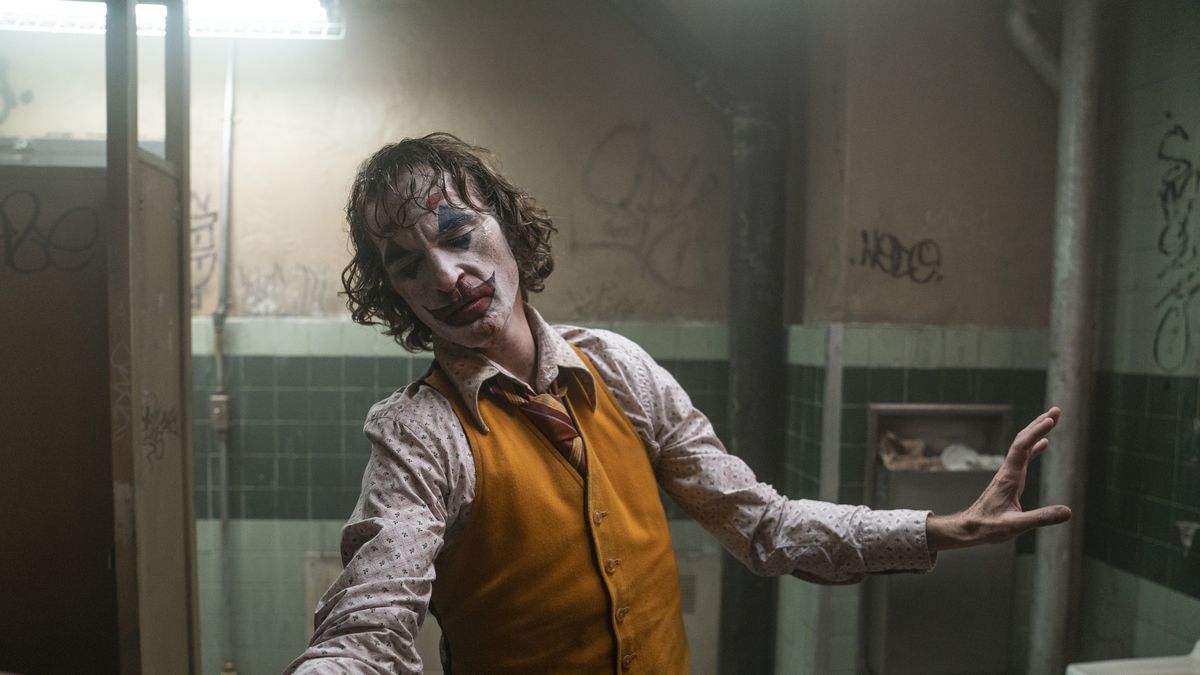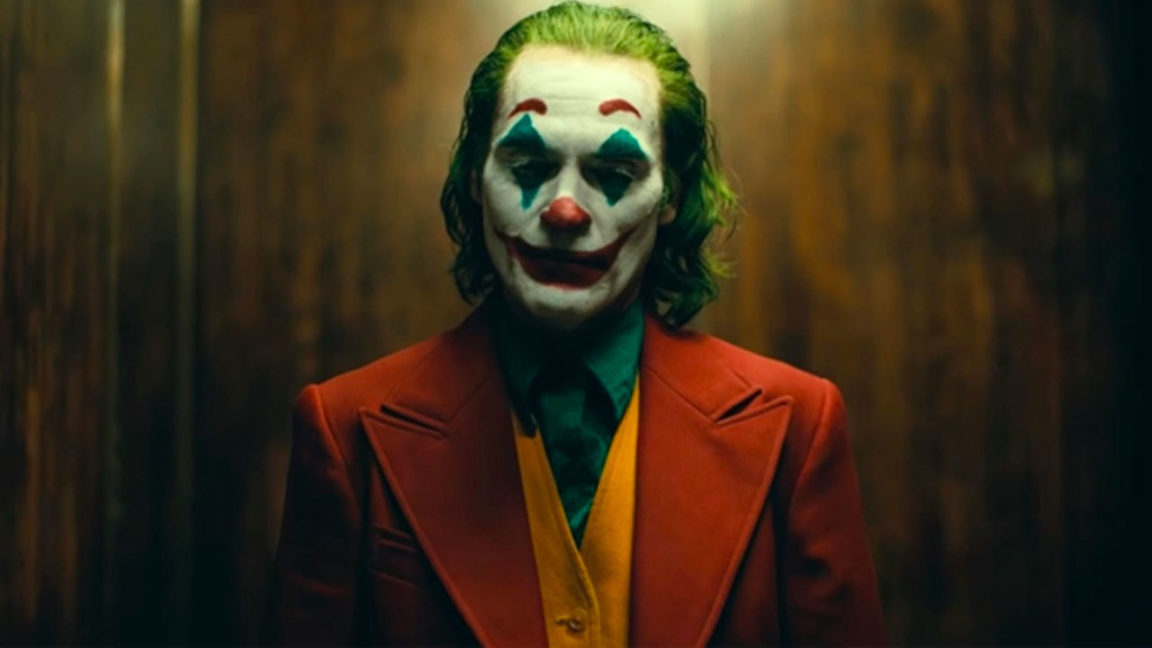Where to begin? Director Todd Phillips set out to make a film unlike any other we’d ever seen in the history of comic book films. And in that regard, he succeeded completely.
He also set out to tell a tale of a sympathetic Joker, without endorsing or justifying his penchant for wanton and brutal violence. In this regard, he may not have succeeded. But in order to determine this, let’s take a deeper look at Joker!
Spoiler Free Until the End
City of Misery
The film wastes no time by presenting us with a Gotham City that is in desperate need of Batman, or some sense of order and justice. Everything from trash piling up, to a massive rat infestation, to rampant crime makes the city one miserable hellhole for all those who inhabit it.
Among these unfortunate souls is Arthur Fleck (Joaquin Phoenix). Right away, we catch a glimpse of his pathetic life, one which includes living with and taking care of his mom, working as a clown twirling signs, and being beaten by teenagers in the street.

Before we mention anything else, let’s not ignore what might be a career-best performance by Joaquin Phoenix. Not only does he give a layered performance that makes us feel immense sympathy for him, but when goes dark, he’s downright terrifying!
In addition, his laugh is unlike any Joker we’ve ever heard in that it always sounds like he’s just a second away from crying as well. We’ve seen Jokers as sadistic and gleeful about murder, but we’ve never seen one that emitted such misery underneath it all.

As Arthur goes through a series of setbacks, including losing his job and losing his access to government-paid mental health treatment, his outlook becomes far more bleak than ever before.
But rather than cry, he laughs and continues to pursue a career as a standup comedian, dreaming of being on a late night show with his idol Murray Franklin (Robert De Niro). Eventually this leads to him becoming the homicidal clown prince of Gotham we all know.
Descent Into Madness
There’s an odd sense of beauty in the film’s cinematography, especially in scenes where Arthur is taking one step closer to becoming the titular villain. We hear dramatic instrumental music meant to convey a great sense of significance.
It’s almost seems like a ballet or opera at these moments. And while Phoenix truly shines in his performance, it’s quite clear that Todd Phillips is under the impression that the story he’s telling is of great importance. Or at least he thinks it is.

Throughout the whole film, it’s quite clear that the film thinks it’s much more brilliant and smart than it really is. It toys with themes of mental illness, class warfare, and self-confidence, but at no point does it feel like it has the merits to deal with these heavy subjects.
As Fleck demonstrates his dark sense of humor, his jokes are quite childish and immature, compared to the darker, but brilliant sarcasm that Heath Ledger and Jack Nicholson brought to the role years ago.
Inspiring Real Violence?
This has been a hot button issue ever since the later trailers were released, as well as after some less than tasteful remarks by Phillips defending his film. Ultimately, it’s not really fair to blame a film for what it may “inspire” as there will always be those disturbed individuals who misinterpret the world around them, and who mistake a piece of entertainment for a calling or manifesto. Rather, a more relevant question to ask is, does this film glorify the Joker and his heinous actions? And to that we can merely say, maybe.
Clearly the film wants us to feel sympathy for Fleck, and there’s absolutely nothing wrong with that. But when that character inspires a whole movement that the audience is meant to side with, it starts to become an issue.
Even as he starts to do more disturbing and violent things, there’s an almost humorous and slapstick nature to it, which disarms us from taking it seriously. Which, again, wouldn’t be an issue if the film didn’t try so hard to be gritty and realistic. Certainly other films have been far more violent and humorous in their approach to violence, but not have had so much self-importance as Joker.
Spoilers Ahead – You’ve Been Warned!!!
Should Have Ended 5 Minutes Sooner
As Fleck’s violence reaches its crescendo, he murders Murray Franklin on live TV, which sparks the massive riot in downtown Gotham. Here, we see the visual representation of all the chaos and brutality that Fleck has devoted himself to. As the rioters in clown masks destroy the city, and surround the Joker as if to worship him, we see the grim reality of what’s done.
As the tense and emotional score plays, we finally understand that while Fleck was a sympathetic loser in the beginning, he’s truly become a monster now. Had the film ended on this shot, it would have told his story perfectly, and ended on the disturbing note it should have. Because after all, a story like this should end unhappily, given that it’s dealt with the creation of a psychotic villain.
But rather, the film lingers for an additional few minutes, just long enough to see Fleck in an asylum, and kill his psychiatrist, just to run away from the guards in a comical, slapstick scene. It is with this visual that we get the upbeat credit song and see the end title card. And in doing so, the film undermines everything it had brilliantly conveyed just a few minutes earlier!
Hopefully this film doesn’t inspire any real life violence, but honestly it is difficult to blame entertainment for such things. Doing so was a bit of a stretch in the past, and it is now too. Phoenix deserves all the praise he’s getting as his performance really does make the film. That said, it’s not nearly as brilliant as it thinks it is. But it’s still a well-made, disturbing, and entertaining story!





